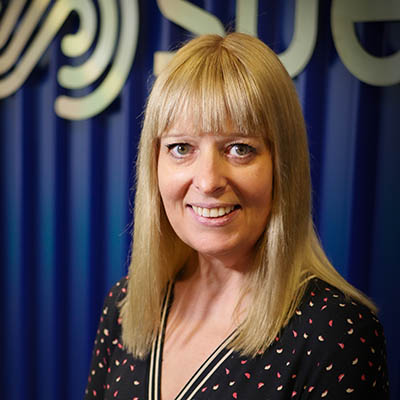Green careers: Attracting graduates into the waste sector

As if that were not daunting enough, there is also a challenge looming over our human capital. The UK already faces a nationwide shortage of graduate engineers. Considering the need for new and more advanced facilities and the potential of emerging technologies, we can expect further skills shortages in new as well as existing roles – from data analysts and behavioural scientists to compliance and project managers, specialists in automation and AI applications to plant and process technicians.
We are an industry that must harness innovation to solve numerous environmental and technical challenges, but our workforce is ageing. Data from the CIWM suggests almost 12% of staff are over 60, and only 5% are aged 16-24, as we struggle to recruit young talent across all roles. As it stands, the UK has a green skills deficit of approximately 70,000 workers. Given the potential for job creation in new, clean technologies and industries, that gap and the competition for young talent is likely to grow.
How to capture fresh talent?
At SUEZ, we are trying to be proactive as we address these challenges by becoming a learning organisation and developing the skills, knowledge, and competencies needed to drive the net-zero transition across the business at all levels. This ranges from upskilling existing employees and developing our future leaders to modern apprenticeships and our graduate programme.
This autumn sees the launch of a revitalised graduate scheme focused on training and professional development, innovation, and gender balance. Previously, business units within SUEZ recycling and recovery UK recruited graduates for specific roles and oversaw their induction and training in consultation with the local and central HR teams. Our revamped programme treats our new intake as a single cohort. Graduate recruits will work through the core programme together, which will allow them to get to know each and support one another too.
Our 12 new colleagues – six men and six women – will work in roles that range from support and business services (IT, accounting, legal and HR) to operations, energy, and other technical specialisms. These roles are spread across our UK regions.
From the outset our graduate recruits will gain experience in multidisciplinary teams and business projects. They will be exposed to the various aspects of the business so they can develop a holistic understanding of sustainable waste management operations and the real-world challenges we face.
What graduates contribute
After 3-4 years of rigorous study, graduates bring diverse and fresh perspectives essential for innovation, strong foundational skills, and enthusiasm for learning. We have seen the valuable contribution graduates make across the business, and how they help drive our ‘growth mindset’ as an organisation.
The future of a sustainable circular waste economy requires new strategies and continuous improvement. To that end, we aim to foster a collaborative problem-solving mindset by facilitating graduate interactions and mutual support within a guided framework. Every graduate benefits from a structured personal development plan, including mentorship, in-house training, virtual learning opportunities, and support towards chartered status or equivalent professional qualifications.
It is a common concern that once fully trained, graduate recruits will move on without delivering a return on investment. However, data from a 2023 survey by the Institute of Student Employers revealed that retention rates remain high after five years, averaging 56%. Hiring early-career candidates allows companies to mould senior leaders in the company image, reducing the retraining costs required for more experienced hires. This was confirmed in a data analysis experiment by Johnson & Johnson, which found that recent graduates performed comparably to senior employees and secured more promotions – a fact attributed to strong social ties developed within their cohort.
We have seen former graduates develop into senior managers. Graduate recruits are a vital part of the pipeline of future leaders we are building for the company.
Graduate programmes can also help diversify staff demographics. As the CIWM study recognised, our sector must attract varied talent if it is to close the skills gap and foster innovation. Financial performance is also likely to improve. Recent BCG research covering 16 countries suggests diverse management teams yield higher innovation and 19% higher revenues.
As an employer committed to equity, we have developed a thriving Inclusion and Diversity Network. Our sector has a long way to go in terms of gender balance and ethnic diversity. Ethnic minorities form less than 7% of staff sector-wide (the UK average is 11%), and women make up just under 16%, compared to the national 47% average. We are therefore thrilled at the gender parity in our new graduate intake.
A new waste industry narrative
The waste industry won’t be front-of-mind for the vast majority of graduates, but we have an opportunity to change the narrative.
Interest in green jobs among graduates is rising. UK data shows 86% of graduates prioritise companies with a positive environmental impact when seeking jobs. It’s an encouraging statistic, especially as young people face the worst market in years with a 30% drop in graduate vacancies compared with 2023. However, approximately 75% of UK students and graduates report feeling uninformed about green career opportunities.
Compared to more glamorous or lucrative careers in finance and technology, waste and resource management isn’t going to become the top choice among graduates overnight. But what is perhaps not initially recognised is that we have great finance and technology opportunities within the sector. Negative images of ‘dirty’ operations such as collecting, sorting or tipping waste persist. There’s a general lack of awareness about the diverse career opportunities in our field, and the innovation underway to deliver sustainable resource management and carbon net zero.
Efforts are underway to change this narrative. The CIWM is working with the Green Jobs Delivery Group (GJDG) to plan for future careers in waste management, and I am chairing a new CIWM Sector Inclusion Forum that has strong ambitions to bring about change. Initiatives like Siemens' Connected Curriculum programme, working in partnership with 17 UK universities, provide staff training and materials to equip graduates with Industry 4.0 insights useful to smart waste management.
Graduate hires are only part of the skills solution. Since 2018, our apprenticeship programme has grown significantly. In 2023, more than 50 joined the programme. The opportunities for new and existing employees are diverse, from business administration to mechanical engineering, involving qualifications from Level 2 to degree level.
We need to educate people about our sector’s worthwhile and fulfilling career paths from an early age. SUEZ recycling and recovery UK plays its part by sponsoring STEM and other learning resources for primary pupils, teachers and parents. Children learn about the environment, and also our work. Visitor centres at some of our main sites host tours for primary and secondary schools, offering educational activities that are informed by our people’s expertise in energy-from-waste and materials recycling.
Our sector faces a difficult transition. But with talented people at every level, and former graduates contributing in all parts of the business – including senior leadership – we can be more confident of achieving sustainable success.
